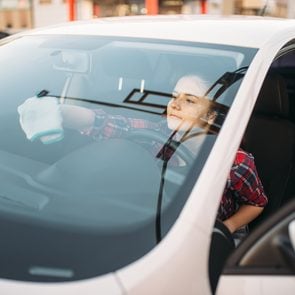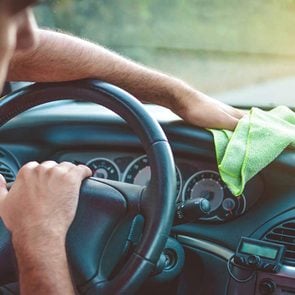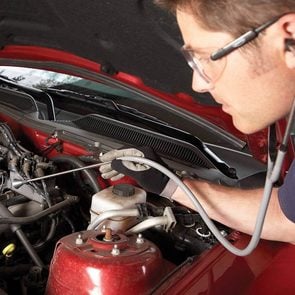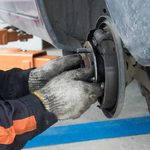The Pros and Cons of Different Types of Car Washes
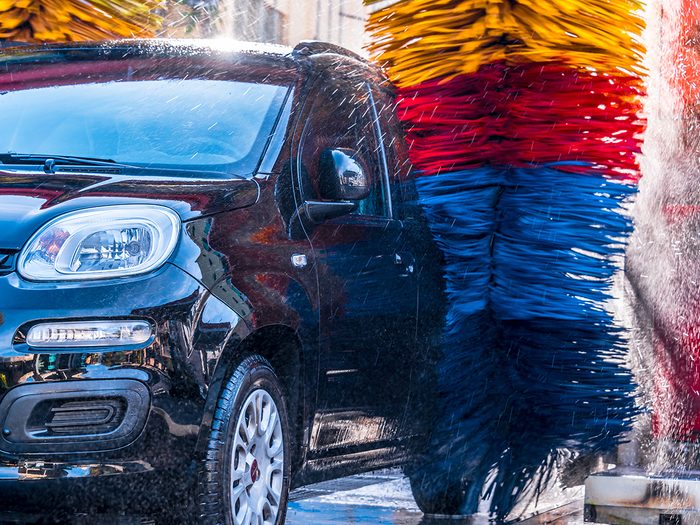
When you just can’t do it yourself, there are plenty of ways to get your car washed. Whether your ride needs the full spa treatment or a quick bath, learn about the pros and cons of the different car cleaning services.
Self-Service Car Washes
It’s important to consider these car wash pros and cons before heading out to clean your ride. Roll up your sleeves (without using any of your tools) at a self-service car wash, which typically costs less than $15. Use their water hose, soaps and sponges—all you have to bring is your attention to detail and a bit of elbow grease. Check before you go to see if you need to bring towels for drying. Washing, rinsing and drying one section at a time will help avoid water spots.
Be sure you use this option under the right conditions, though. If you’ve been driving around for a while, your car is probably too hot to wash; the soap will dry and leave spots before you can rinse it off. The same goes for washing with the sun beating down on you. (While you’re at it, discover how to clean rubber car mats.)
Automated Car Washes
Automated in-bay car washes pull your car along a conveyor belt while machines dispense soap and water. Automatic car washes can be a speedy and economical choice, costing between $7 and $15. Cleaning the undercarriage, wheels and tires or using additional soaps and waxes costs extra, usually $2 to $3 per extra service.
There are soft-touch automated car washes that use cloth to scrub the car, and no-touch automated car washes which only use high-pressure water and soap (not foam).
Soft-touch washes offer a more thorough cleaning. If the car wash uses brushes, they usually reach every part of the car and are good for getting rid of dust and pollen. But the force of the brushes can damage side-view mirrors or antennas. (Here’s how to replace a broken side-view mirror.) If the car wash uses thick cloth strips, the car must also be thoroughly rinsed before the cloth touches it or else the cloth can cause the dirt to scratch the paint.
No-touch car washes are cloth- and brush-free so there’s no risk of scratches. They also use less water. But without brushes or cloth strips, a no-touch wash may be less effective. No-touch washes that rely on more cleaning agents to make up for the lack of cloth or brushes could also damage your paint.
Some automated car washes use machine dryers at the end, but some will have staffers dry your car by hand with towels. If they provide this service, the car wash will cost a few dollars more.
Hand Car Wash
Professionals washing your car by hand will go over every inch with a thorough eye and use top-notch supplies. Automated car washes won’t notice their mistakes or errant dirt and spots, but a professional won’t let you leave with any dirt or water spots. Plus, you can splurge on waxing, detailing and interior cleaning. The only con is the extra time and money; hand-done car washes can cost from $20 to $50. But if your car needs some TLC, it could be worth it.
Now that you know these car wash pros and cons, check out these cleaning tricks professional car washers won’t tell you.
